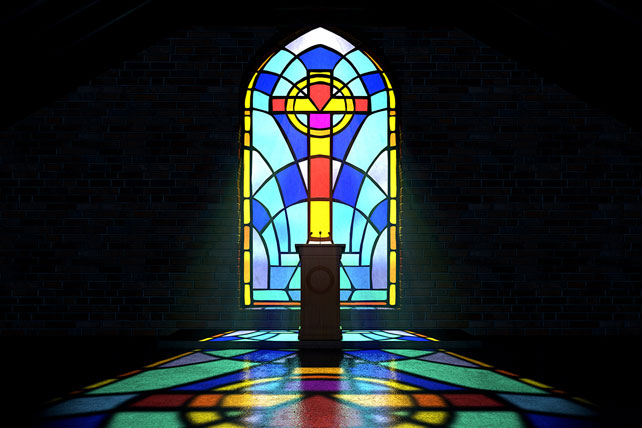“Everything happens for a reason.” Perhaps you’ve heard that before. Perhaps you’ve said it. I’d like to suggest that there’s a world of difference between “Everything happens for a reason,” and “God gives reason to everything that happens.” The first is Christian fatalism; the second declares the glory of God.
For years, my wife was the director of a crisis pregnancy center in our town. She comforted and held women of nearly all ages as they faced unexpected news or had nowhere to turn when everyone had walked out on them. One of the most memorable moments my wife experienced was when a teenage girl, a Christian, received the news that her pregnancy test was positive. The young girl’s world was undone. She cried in my wife’s arms and asked, “How could God let this happen to me?” There on the couch was not the right moment to chide the girl about the sum of her personal choices. She needed comfort. But during the ensuing months, through Bible studies and parenting classes, the young woman learned that the freedoms given to us by the Creator are also accompanied by the results of our choices. God respects us so much that he allows the choices we make to have meaning.
Finally, the months came to term, and a beautiful new life entered the world. The teenage mother returned to my wife’s office to show off her trophy of new life, a baby fearfully and wonderfully knit by God. This time the excited young mother declared, “You see, everything happens for a reason!” The beginning of her pregnancy had been met with recriminations against God. The birth of her child was met with a joyful ignorance about the gentle ways of the Father.
The idea that God is somehow pulling the levers behind the screen of life is what I call Christian fatalism: God is all-powerful. His will cannot be denied. Therefore, everything that happens must have been part of his plan from the beginning. He was behind everything all along. Isn’t God great?
It’s true: God does manage to draw wonderful outcomes from the foolishness of men. It is also true that the glory of God’s power and wisdom is frequently on display in human affairs in spite of our choices, not because of them. Part of the glory of God is his ability to accomplish his will in the midst of the complexity of a billion human choices. He does not over-rule our lives. He works within them. He is forgiving, patient, and kind. He knows our weaknesses and chooses to partner with us anyway. What some mean for evil, God turns into good. But he is never the author of that evil.
The twin dangers of Christian fatalism
Believers—who ought to be disciples—first come to believe that their sinful choices have been the will of God all along, and second, believers are tempted to believe that whatever happens in life must be ordained by God.
The first danger
Christian fatalism strips away responsibility for our choices and undermines the call of God to repentance as a way of life. Repentance is not simply the doorway into life with God; it is the hallway as well. The New Testament word for repentance is metanoia, which means simply to change one’s mind, or even better, to rethink our way of life. This rethinking should be an on-going way of life. The Apostle Paul tells us “be transformed by the renewing of your mind.” (Romans 12:2) Renewal comes from a continual rethinking of every aspect of life. First God forgives us at the beginning of our relationship, then he teaches us a new way to live.
The second danger
In Christian fatalism believers accept each event in life as part of God’s foreordained plan. I have watched followers of Jesus embrace tragedy as if it was sent from God. Sickness is a prime example. Many of God’s children embrace sickness as part of God’s dealings in their lives. I have heard some Christians refer to cancer as “my gift from God” because they have learned so much through the ordeal of treatment. The clear revelation of scripture is that God is holy and good. He is the Father of lights, the giver of every good and perfect gift. Testing and failure do not come from him. He is not the source of sickness and disease. It’s true that in our sickness, we can experience the grace of God or develop Christian virtues such as long-suffering. But that is something very different from ascribing the source of our illness to the heavenly Father. What earthly parent would infect a child with disease in order to teach character lessons? Why would the perfect heavenly Father do what is unthinkable among us?
Wise pastoral ministry needs to be aware of these twin dangers. Sin and sorrow have been loosed on the earth from the very days of the Garden of Eden. We may at times be subject to them, but our Father has never inflicted them upon us for our good. Christian fatalism lures us into a false expression of God’s sovereignty and separates us from his glory. Perhaps we can discover more of his greatness by standing with him against the sin and sorrow of our age.
This article originally appeared here, and is used by permission.

